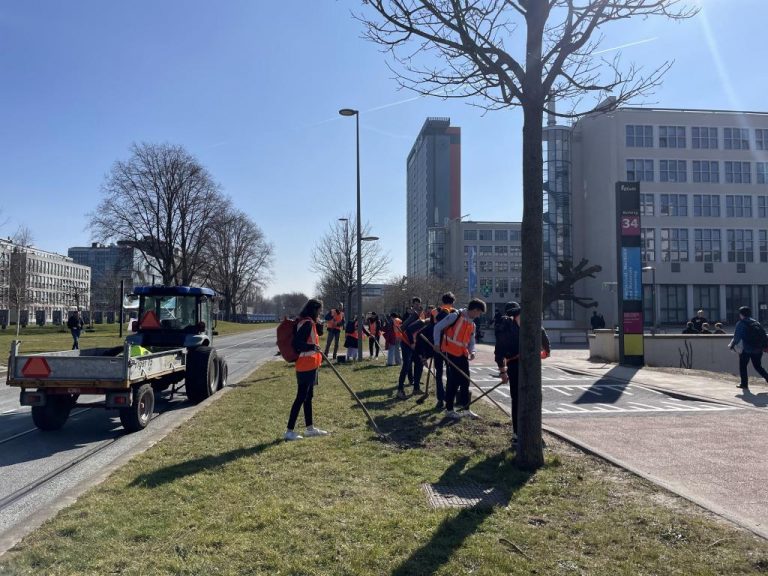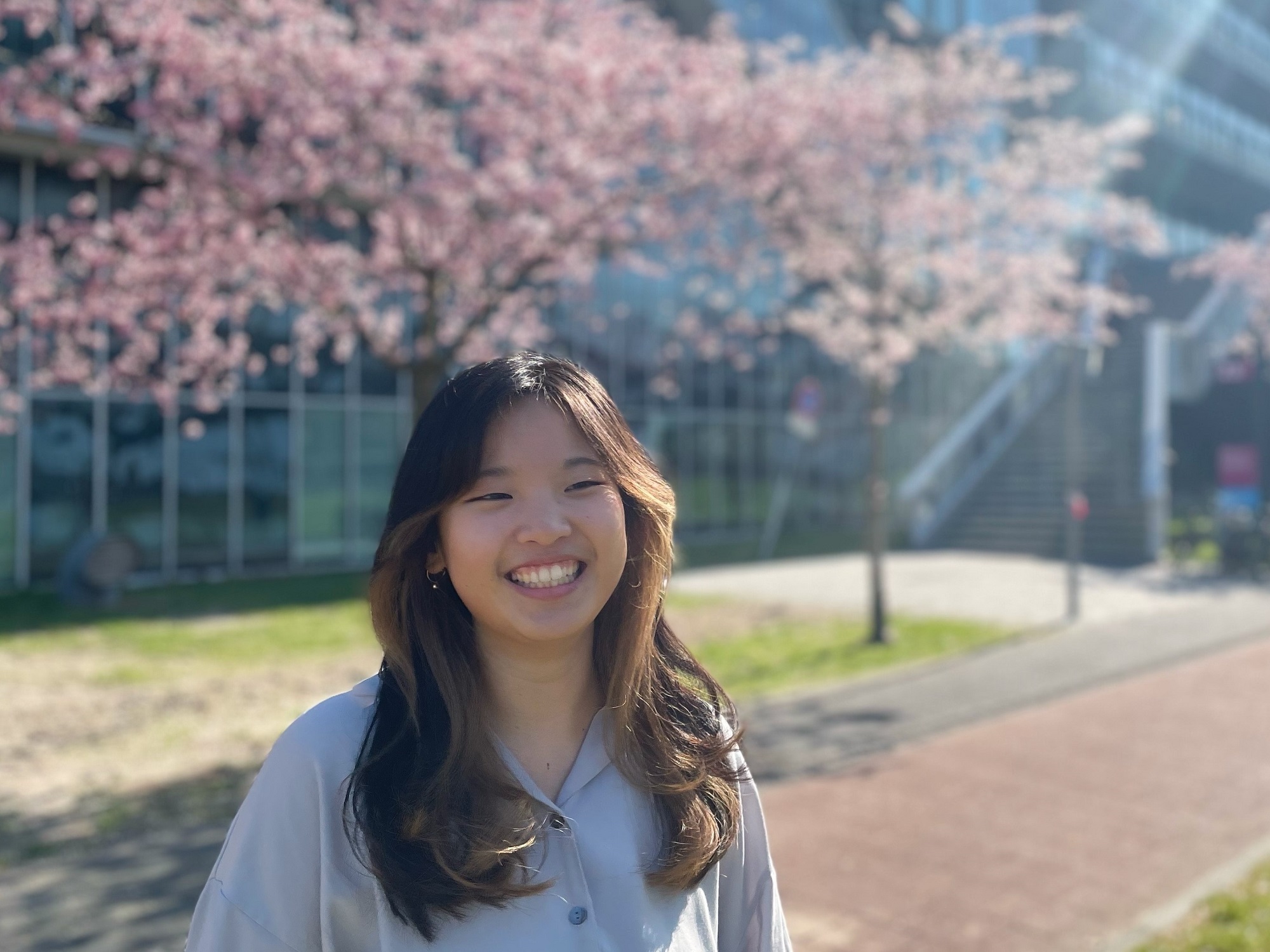When it comes to sustainability, even a tiny change in your lifestyle can make a big impact says Green TU Board member Olivia Meng.
Olivia Meng: “We did a wildflower sowing event on campus. It was an initiative to not only improve biodiversity on campus, but also about increasing the visibility and awareness of why this is important.” (Photos: Froukje Visser)
“I did my bachelor’s and now I’m doing a master’s at the Faculty of Architecture and the Built Environment. Since the beginning of this academic year, I have been part of the Green TU Board as the Operations Coordinator. I look at operations on campus at TU Delft and how we can make these more sustainable in some way, how we can contribute or initiate new ideas. We work for the Executive Board of TU Delft but it’s really a bottom-up approach from the student side.
I have always been interested in sustainability, mostly because of my personal concern with the current climate crisis. As a student, sustainability can feel vague and out of reach sometimes. I really wanted to learn more about how to make sustainable change, also outside of my own field of architecture. At a complex institution like TU Delft, you can learn how to tackle these challenges and hopefully make tangible impacts.
We’re involved in every aspect on campus. We have six Board members who work on different things, such as education, research, outreach, and student engagement. With regards to education, we have a project called the Green Thread which is about implementing sustainability throughout the curriculum of different studies. We work together with professors to integrate sustainability more in the education. Every faculty also has its own Green Team, which is a team of students that works on sustainability, specifically for their faculty. We coordinate them to make sure they are aligned and work well and efficiently.
As for me, my field of work is related to food, waste, mobility, energy and the Ecocampus. The projects I’m doing are about making change in operations on campus. For example, I’m trying to get a system in place that replaces our disposable coffee cups with reusable coffee cups, like a deposit system. As students we see that the threshold of bringing your own cup can be high, it’s not always convenient. But a system like this, where you pay a deposit and get it back when you return the cup, would work well in our environment.
‘We’re trying to improve the waste separation at some of the canteens’
That’s an example of a big systemic change we are trying to implement, but we’re also working on changing behaviour among the community, for example by creating infographics at the coffee machines that will show you how to use your own cup. And we’re trying to improve the waste separation at some of the canteens, like in Architecture and the Aula. Even though we have basic systems in place it can still be confusing where to actually throw away different kinds of materials. So we aim to communicate that more clearly and create awareness among students and employees.
A couple of weeks ago we did a wildflower sowing event on campus. It was an initiative to not only improve biodiversity on campus by spreading wildflowers, but also about increasing the visibility and awareness of why this is important. We chose the patch of grass along Mekelpark between the tram line and bicycle path, which is the busiest area on campus, to make this change more visible. These flowers will bloom in June so now people will know where they came from.


The Green TU team sowing wildflower seeds on campus.
For our Board this year, the goal was that we would like to show that sustainability is and should be accessible for everyone. What I mean by that is that sometimes it can be hard to be involved with sustainability if you’re not in this Green TU bubble. We really want to share that sustainability can be everywhere and collectively, even a tiny change in your lifestyle can make a big impact. We want everyone to see that it’s not only important but everyone can do it.
We are always interested and open to new ideas and initiatives, from students or staff or anyone else, so don’t hesitate to contact us if you have one. You can follow us on social media to stay up to date with our events and get involved.”
Want to be featured in Humans of TU Delft? Or do you know someone with a good story to tell? Send us an e-mail at humansoftudelft@gmail.com
Heather Montague / Freelance writer



Comments are closed.